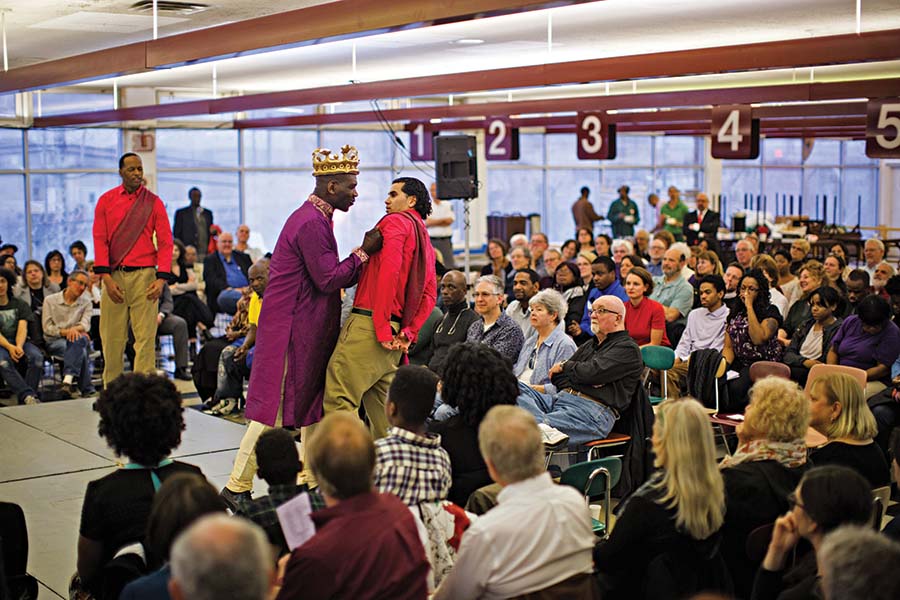Community, Leadership, Experimentation, Diversity, & Education
Pittsburgh Arts, Regional Theatre, New Work, Producing, Copyright, Labor Unions,
New Products, Coping Skills, J-O-Bs...
Theatre industry news, University & School of Drama Announcements, plus occasional course support for
Carnegie Mellon School of Drama Faculty, Staff, Students, and Alumni.
CMU School of Drama
Wednesday, January 23, 2019
A Role for Theatre in Criminal Justice?
AMERICAN THEATRE: It was a refrain Kate Powers heard repeatedly as she began to knock on the (digital) doors of corrections facilities throughout Minnesota in early 2017, attempting to get a foot in the door for her Shakespeare-in-prison program, the Redeeming Time Project. That is, when she got an answer at all; most of the time her outreach emails to wardens received no reply. Her calls to state legislators did eventually lead to an introduction to the Minnesota Department of Corrections Commissioner, who sets policy for corrections facilities statewide, but that meeting proved to be a dead end.
Subscribe to:
Post Comments (Atom)

3 comments:
I always wondered what I would do with my time if I was in prison for a while. I always felt bad about the way everyone viewed prisoners and the way that they’re treated. Obviously, they’re sought out as highly dangerous people capable of many things, but I think that there much more than that to them. Many people who are currently in prison are completely innocent and are stuck in there on the account of a failed justice system. So, I think this program is a great way to make them feel normal and alive. I think just because you are in prison and you made a mistake, doesn’t mean you should be treated like nothing and I think this program is one step closer to rebuilding a kind of society and reality in prison. I think the fact that they also get to do theater and shakespeare is a very clever way to make them forget about where they are for a second and completely enter a new era while also learning about it’s history.
I think one of the reasons that I personally was unsurprised that this unexpected program works so well in prisons is that theatre-making is ultimately rooted in human connection and relationships. It makes sense to me that inmates living in isolation and often without companionship would thrive in a setting that allows them to put on a mask and be someone beyond their reality, or to consciously think about their identity as it relates to others, or both at the same time. Vinson’s list of ways in which this program supports the inmates explains the inner workings of this more eloquently and aptly than I might as someone so removed from the situation of the participants. However, I believe they would agree that trust is also one of the many products of this experience. In an environment that may feel like your credibility is lost, participation in a production gives you a sense of responsibility and necessitates others’ trust in your efforts.
I really love reading about Kate's passion for her work! I think people like her, who have so much love for and faith in the programs they want to create, will be the people who truly bring the change we need. A couple things that stood out to me... I loved that the warden she met with gave her a chance after all the dead ends she reached prior. My favorite part of it all was that the corrections program director took part in the program with the inmates. There's something so beautiful about prisoners and prison staff stripping their traditional roles and working on something together. It sounds so encouraging, and a lovely way to make the inmates feel human when many don't get that chance. I also thought it was interesting that the prisoners said they feel like every day they're acting but in the class they got to be themselves. This article echoes again the idea that these programs encourage OWNERSHIP. When researching for your performance by analyzing a character's motivations, you suddenly reflect on your own choices. You learn how to apply that skill to your own life. It's truly incredible to me. (This article is just jam-packed with things, I've hardly even begun and am already past my word requirement! If I didn't have so many more comments I needed to do, I would totally keep going, but alas, priorities.)
Post a Comment